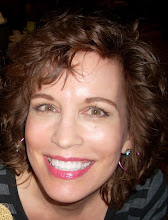The Omnivore’s Dilemma by Michael Pollan
I love fiction best, but I enjoy reading non fiction too. I’m not a big fan of biographies, unless it is someone very special to me. Most often my non fiction forays are of a scientific nature. Being a psychologist by schooling, I delve most often into the human based sciences, although I’m a sucker for anything Diane Ackerman has written. Anyway.
When I say I enjoy science books I do have a few qualifies. First and foremost, said book must be written in a way I can understand. I enjoy reading Stephen Hawkins, but sometimes he writes way over this reader’s head. My second stipulation is that the science writer can write; I want beautiful prose and gorgeous descriptive paragraphs just like I do in fiction. Third, the scientist must either be a scientist, or accurately research scientists and their work. Psychology uses the scientific method just like a chemist, and I know it when I see it. Fourth, although anyone who writes a book has an opinion, I neither want to be hit over the head, nor do I want to see just one side. Present all information, thank you very much, and let me decide.
And that’s exactly what Pollan does. He has an opinion. What his book says, if I had to boil it down to one sentence, is to be more mindful of what you eat. He doesn’t tell you what to eat, just that you might want to consider your nourishment a bit more. His research is sound. He presents his information on why you should care about what you put into your mouth in a compelling, simple, and thoughtful way. What he also does is describe the various places he visits with such clarity that I was alternately horrified and filled with wonder. He is that good of a writer.
I have another reason for choosing scientific books now and then; they inspire my fiction. Reading about the world in all of its complexities is, at the very least, thought provoking. A book written about how we eat, why we eat, what we eat, and how all of that is interwoven within the very fabric of our being has caused me to deeply ponder the cyclic nature of death and how we in the western world are so removed from it. Will that feed (pardon the pun) into my current novel about Kali, Hindu goddess of death and renewal?
You can bet on it.
Saturday, April 17, 2010
Subscribe to:
Post Comments (Atom)





No comments:
Post a Comment